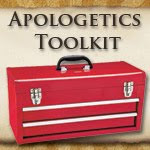 Here are this week's recommended apologetics links. Enjoy.
Here are this week's recommended apologetics links. Enjoy.
KINDLE DEALS:
• Black Friday Kindle Deals
WEEKLY LINKS:
• My Debt to C.S. Lewis
• Saints and Sceptics in Larne
• How to “Un-Create” an Atheist
• Christmas Apologetic Resources
• Quote of the Week: C. S. Lewis
• Reaching Those Who Are Disinterested
• Was Jesus resurrected from the dead?
• November 22, 2013: Honoring C.S. Lewis
• Jesus Valued Evidence and So Should You
• "Arguments" a Free Logic Textbook Download
• C.S. Lewis and the Argument from Reason
• William Lane Craig on C.S. Lewis (Video)
• The Importance of Christian Translators
• Do Faith and Science Conflict? Video Debate
• 11 Best Apologetics Twitter Feeds to Follow
• Does Causality Apply Outside Space and Time?
• Interview : Dr. Michael J. Behe : Intelligent Design
• Thought of the Day: Audio Snippets by Uncle Screwtape
• Why Christian Case Makers Need to Learn a New Language
• How Skeptics Use a Partial Truth to Tell a Complete Lie
• Remembering C. S. Lewis 50 Years after His Death, Part 2
• Understanding and Answering Islam - Atlanta - January 2014
• Bible Secrets Revealed: A Response to the New History Channel Series (Part 2)
Apologetics 315 is a registered 501(c)(3) non-profit. Would you support us monthly?
• Black Friday Kindle Deals
• My Debt to C.S. Lewis
• Saints and Sceptics in Larne
• How to “Un-Create” an Atheist
• Christmas Apologetic Resources
• Quote of the Week: C. S. Lewis
• Reaching Those Who Are Disinterested
• Was Jesus resurrected from the dead?
• November 22, 2013: Honoring C.S. Lewis
• Jesus Valued Evidence and So Should You
• "Arguments" a Free Logic Textbook Download
• C.S. Lewis and the Argument from Reason
• William Lane Craig on C.S. Lewis (Video)
• The Importance of Christian Translators
• Do Faith and Science Conflict? Video Debate
• 11 Best Apologetics Twitter Feeds to Follow
• Does Causality Apply Outside Space and Time?
• Interview : Dr. Michael J. Behe : Intelligent Design
• Thought of the Day: Audio Snippets by Uncle Screwtape
• Why Christian Case Makers Need to Learn a New Language
• How Skeptics Use a Partial Truth to Tell a Complete Lie
• Remembering C. S. Lewis 50 Years after His Death, Part 2
• Understanding and Answering Islam - Atlanta - January 2014
• Bible Secrets Revealed: A Response to the New History Channel Series (Part 2)
Apologetics 315 is a registered 501(c)(3) non-profit. Would you support us monthly?
• Shopping via Amazon? If you use this link, a bit of your purchase goes to fund Apologetics 315. Thanks for those of you using the link, as it helps Ap315.
Canada here. UK here.
• Would you like to help with interview transcription? If so, contact Ap315 here.
Get these sorts of links and more by following on Twitter.Canada here. UK here.
• Would you like to help with interview transcription? If so, contact Ap315 here.
For daily post links, please follow on Facebook.































